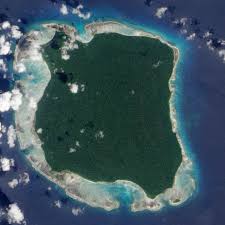Discovering North Sentinel Island: The Last Isolated Tribe

Introduction
North Sentinel Island, located in the Andaman and Nicobar Islands of India, is one of the most isolated places on the planet. This island has gained international attention primarily due to its indigenous inhabitants, the Sentinelese, who remain untouched by modern civilization. Their protection under Indian law raises significant questions about culture, conservation, and ethical considerations in the face of increasing globalisation.
The Sentinelese: A Unique Culture
The Sentinelese are believed to have lived on North Sentinel Island for tens of thousands of years, developing a distinct culture that includes a diet primarily consisting of fish, fruit, and wild honey. They utilise bows and arrows for hunting and have been known to fiercely protect their territory from outsiders. Estimates suggest that the population ranges between 50 to 400, though exact data is challenging to obtain due to their isolation.
Recent Events
In recent years, there have been attempts to interact with the Sentinelese, with disastrous outcomes. The most notable incident occurred in November 2018, when an American missionary, John Allen Chau, attempted to convert the local tribe to Christianity and was killed. This event reignited global discussions about the ethical implications of engaging with isolated communities and the need for stringent laws to protect their way of life.
Protection and Preservation Efforts
The Indian government has implemented strict regulations prohibiting outsiders from visiting North Sentinel Island to preserve the Sentinelese way of life and prevent the spread of diseases to which they have no immunity. These efforts underscore the importance of respecting indigenous rights and their right to remain uncontacted. Wildlife activists and anthropologists argue that the isolation of the Sentinelese is crucial for their survival, especially in a world where indigenous cultures are increasingly at risk of extinction.
Conclusion: The Future of North Sentinel Island
As interest in North Sentinel Island continues to grow, so do the challenges of balancing human curiosity with the rights and autonomy of its inhabitants. The future of the Sentinelese lies in the respect shown by outsiders and the adherence to protective laws. Continued discourse surrounding their isolation raises awareness about the richness of diverse cultures and the urgent need to protect them amidst the inevitable tides of modernisation. For those seeking to learn about the world beyond conventional boundaries, North Sentinel Island stands as a reminder of the beauty of isolation and the importance of cultural preservation.
You may also like

Exploring Southampton: A Hub of Culture and Growth

Exploring the Heritage and Charm of Macclesfield
